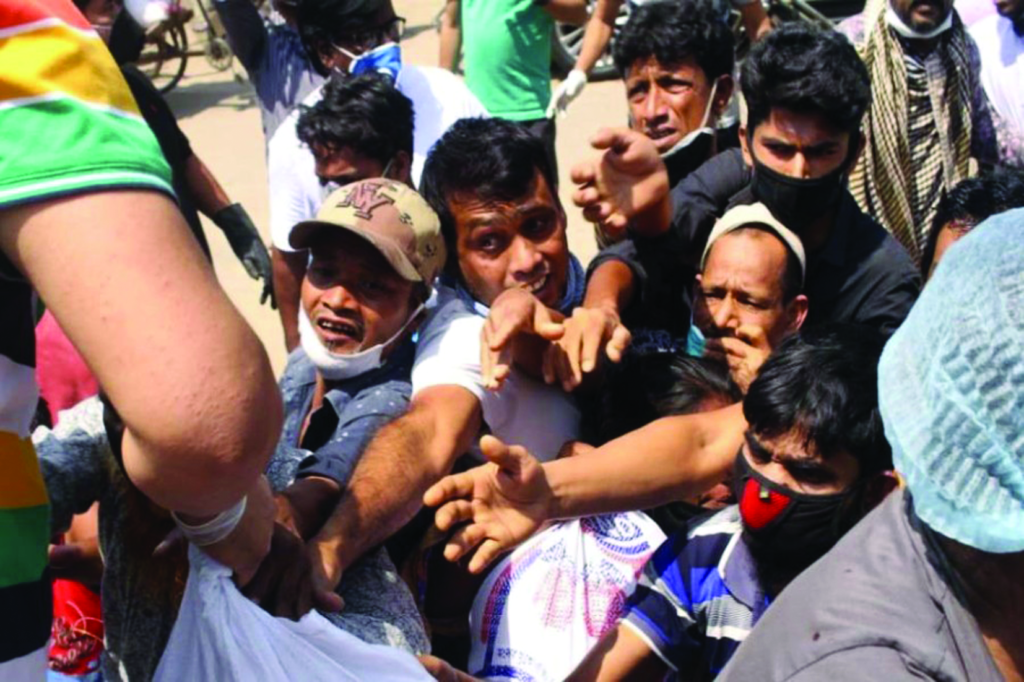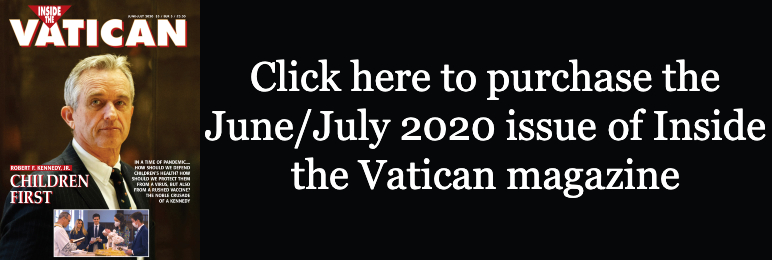
Distribution of supplies during the coronavirus outbreak in Bangladesh
“Universal destination of goods” is always the underlying imperative
By Thomas Storck
In her long existence, the Catholic Church has confronted not only hostile empires, barbarians, and dictators, but also the diseases and plagues afflicting mankind. And in both her doctrine and her praxis we can discover some fundamental principles for how we as Catholics in the 21st century should respond, socially and economically, to the present coronavirus crisis.
First, however, we should recognize that due to uncertainties about the Coronavirus and its future course, although the Church’s social doctrine principles are clear, their application may not always be so.
Underlying all the Church’s social doctrine is a perennial truth, expressed by St. John Paul II this way in Centesimus Annus, no. 31: “God gave the earth to the whole human race for the sustenance of all its members, without excluding or favoring anyone. This is the foundation of the universal destination of the earth’s goods.”
But the earth, for the most part, does not offer us those goods without some effort on our part. “Through workman must earn his daily bread,” wrote John Paul at the beginning of his encyclical Laborem Exercens.
But right now, due to restrictions and business closings, many cannot work. How are people to earn their daily bread?
“Work” does not mean that each and every person must work at any particular moment. “Wealth… must be so distributed amongst the various individuals and classes of society that the common good of all…be thereby promoted” (Pius XI, Quadragesimo Anno, no. 57).
The common good at this time clearly seems to demand that provision be made for those simply unable to work. Thus, aid to small businesses, expanded unemployment benefits, income supplements, such as the stimulus checks being distributed in the U.S., are necessary at this time, and if not continued too long, pose no great inflationary danger.
Of course, the role of charity, practiced by individuals who are able, is a grave duty.
We should note that many “essential workers” are exposed to greater risk. At least in some cases, additional hazard pay seems an entirely appropriate demand of charity, if not justice.
Pope Francis even spoke at Easter about the world’s “informal workers” — those who work under the table, who do odd jobs, and others who therefore have no job protection or security at all — and what society can do to provide them with some sort of support, recognizing the dignity even of such simple work.
Catholic social doctrine is also concerned with political authority. How do we approach government decisions with which we do not agree?
Both Sts. Peter and Paul are quite clear: absent commands contravening divine or natural law, we must respect civil authority as “instituted by God” (Romans 13:1).
Pope Leo XIII echoed this in his 1890 encyclical Sapientiae Christianae, no. 9, saying Christians “recognize some likeness and symbol as it were of the divine Majesty, even when it is exercised by one unworthy.” Expressing disagreement is one’s right; disobeying legitimate authority is not.
The principle of universal destination of goods for the well-being of all mankind, the principle of solidarity and fraternity, the God-given role of public authorities in caring for the common good — these are what should underlie our response to the coronavirus, and indeed, are what should determine our thinking and our policies at all times.
Thomas Storck has written widely on Catholic social teaching, and most recently authored An Economics of Justice & Charity (Angelico Press, 2017) and translated Liberalism: A Critique of Its Basic Principles and Various Forms by Louis Cardinal Billot, S.J. (Arouca Press, 2019). His writings can be found at www.thomasstorck.org







Facebook Comments